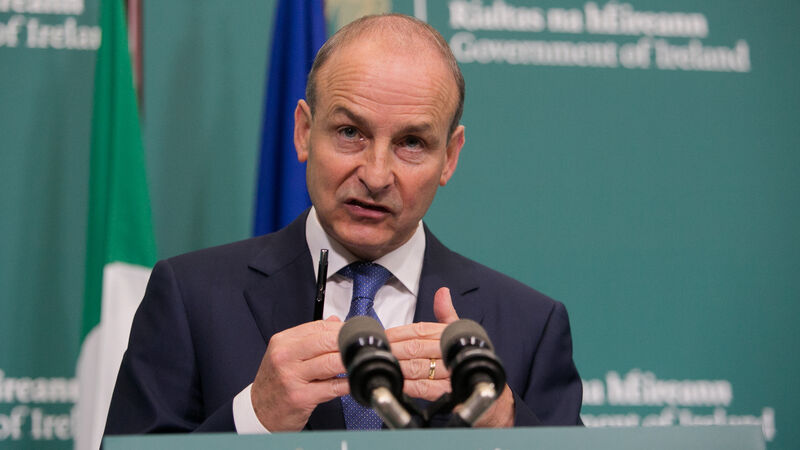Security of ministers and TDs under review after protests outside homes

Taoiseach Micheál Martin said security for all TDs should be reviewed in light of the killing of British MP David Amess. Picture: Gareth Chaney/Collins
A major review into the security of ministers and TDs is underway in light of recent protests outside the homes of leading politicians and the killing of British Tory MP David Amess, the can reveal.
It is understood that a joint review involving the Department of Justice and An Garda Síochána was commenced in recent weeks and is examining current protocols and security measures, according to senior Government sources.










